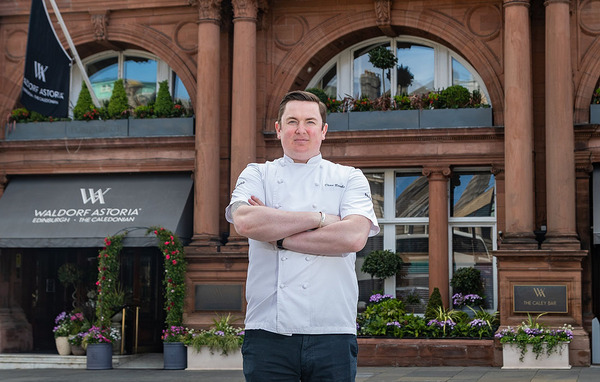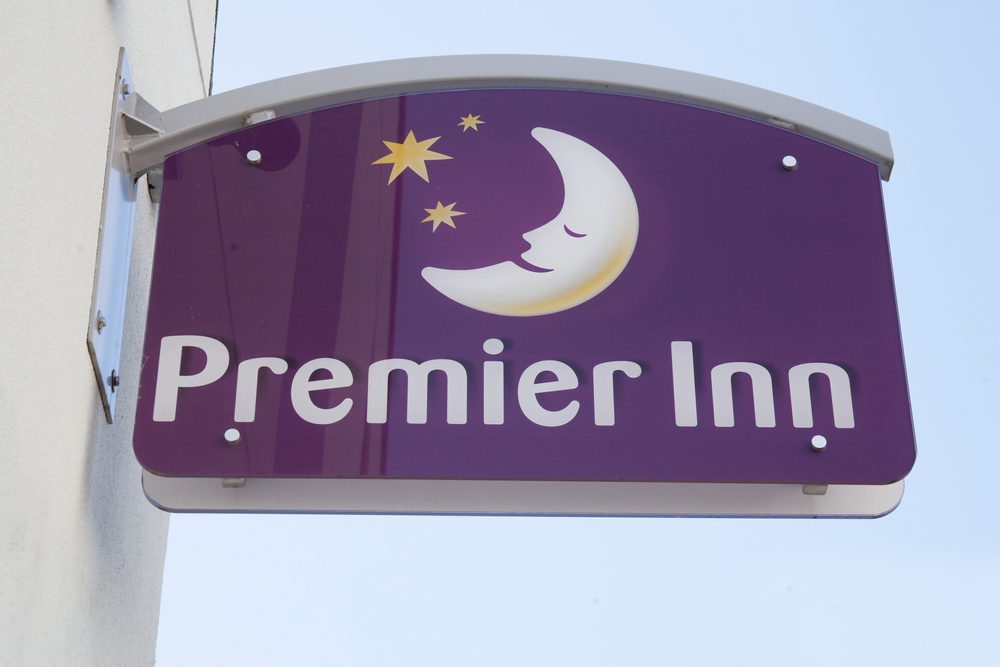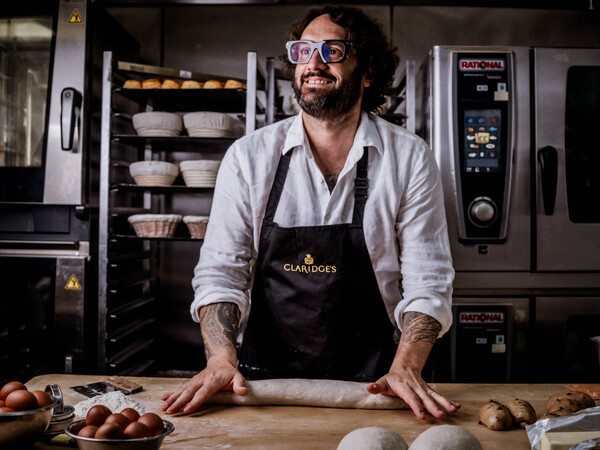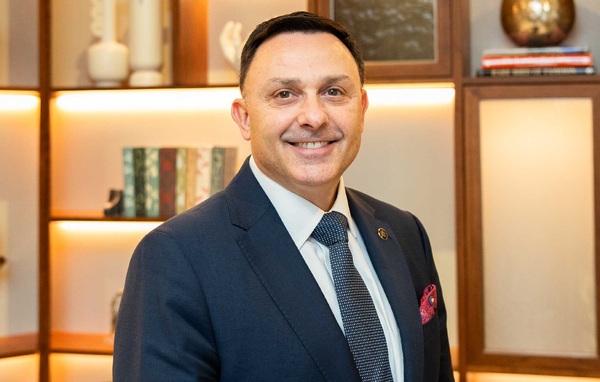Jobs for the girls – women in hospitality
As we kick off our issue celebrating the achievements of women in the hospitality industry, it's good to see that more women than ever are forging successful careers. So why does the notion of a glass ceiling persist? Nic Paton reports
In 2003, when Audrey Gillespie, then general manager of the Glasgow Travel Inn (now a Premier Travel Inn) was offered a position as an area manager, it seemed like a God-given opportunity - except for one problem. She had just discovered that she was pregnant with her second child.
"My boss was unaware of this, so I withdrew my application and explained to him why," recalls Gillespie, who started as a sales executive with the Holiday Inn/Marriott in Glasgow in the early 1990s. "He asked me if I wanted the role. I said I did, and I started that August. So when I went on maternity leave, I knew I had the support of my boss and my team of general managers."
The fact that parent company Whitbread will next month promote Gillespie into a new role as Premier Travel Inn's regional director for the North and Scotland speaks volumes - not only in terms of how such companies treat female employees, but also about the progress the industry as a whole has made when it comes to opportunities for women.
Macho environment?
Despite its reputation for demanding long and often unsociable working hours, in a sometimes macho environment, it is clear that many women see hospitality as an attractive career choice. For instance, an online poll carried out for this feature by travel and hospitality recruitment company New Frontiers found that, of 1,317 hotel managers polled, 558 were men and 759 were women.
A similar poll by the organisation last autumn concluded that nearly two-thirds (62%) of its registered F&B managers were female, as were 72% of registered revenue managers, conference and banqueting managers and finance managers, while 68% of sales directors were female.
Of course, these are only snapshots. And the larger question, as New Frontiers managing director Julia Feuell points out, is where they all go when it comes to senior, and particularly board-level, positions.
"You know this will change around once you get to director level," she says. "The numbers of women will be significantly less - probably 25% at most."
Women will often progress to senior positions in areas such as marketing, HR, finance and PR, but breaking through into "hard" operational areas can still be more problematic, agrees British Hospitality Association chief executive Bob Cotton.
He says that, if you look around the big London hotels, you will probably see, at most, a smattering of female general managers. Off the top of his head, Cotton can name only two.
"And in the kitchen," he adds, "beyond the Angela Hartnetts or Sally Clarkes of this world, you are not naming hundreds. In mainstream four- and five-star hotels, I am sure you will not find many female executive chefs."
But before everyone starts tub-thumping, it's perhaps worth considering whether this disparity is evidence of something wrong in the hospitality sector specifically, or is simply a consequence of the choices women in any career are forced to make as they progress up the ladder.
"There is always this assumption that it is because women are somehow suppressed," Feuell says. "But I think it is really just about choice. This is exactly the point when a lot of women start to prioritise family over their career. They do not want to have to juggle all the time, they do not want the stress of something as responsible as a senior-level position."
Sacrifices
However, for those who are prepared to make sacrifices, there are now many more opportunities for progression, according to Sue Allen, regional operations director for Scotland at Punch Taverns, who has been with the company for 17 years.
"I've worked and had two children and have never had an issue," she says. "Yes, you have to juggle - it is a constant juggling act and yes, it is not nine-to-five. But it is more about merit. It is about encouraging people to have a go."
She adds: "In the past, you'd often find a bit of an old-school mentality, a lot of ex-army old boys. You also tended to have to come up through the brewing route, and there were not many women within the brewers. It was an old-fashioned attitude, rather than a male or female attitude."
Wendy Bowman runs Greene King pub the Red Lion in Sturmer, near Haverhill, Suffolk. Nothing unusual there, you may think. But Wendy runs it with her three sisters, Caroline, Angela and Hannah, and their mum, Sheila. "I think the doors are wide open nowadays," she says. "The traditional landlord concept has fairly much gone out of the window."
There will always be men who do not accept that a woman is the boss, but that's their problem, she argues. "There are some men who find it hard to believe the pub is run by five women," she says. "You still get that occasionally, and you do need to have a thick skin because there is always banter, but for the most part people are really impressed.
"Running a pub is also all about diplomacy and tact. In fact, I'd say we have more trouble from some of the women customers than the men."
And she adds: "I think the smoking ban will encourage more women to come in, definitely. You tend to get quite a few younger members of staff looking up to you, particularly the younger girls. They see you can do it and realise they can, too."
Of course, one way to become the boss is to buy the business, which is where hospitality's embrace of franchising as a business concept sometimes works well for women.
First franchise
Domino's franchisee Lisa Tobias started with the company when she was still at school. Although she left to go to university, she quickly decided that college life wasn't for her, came back to Domino's and, by the age of 23, had bought her first franchise. Now 26, she owns four franchises - in Ayr, Glasgow, Kilmarnock and Clydebank - and is also an ambassador for the Prince's Trust, going to schools to encourage other youngsters to follow her lead.
"I do not feel that my gender has held me back at all," she says. "As long as you are prepared to work hard and are passionate about the brand, it doesn't matter about your age or gender."
She adds: "It helps that I've worked my way up. I have done everything that everyone else has done. I can understand what people are doing."
With the customer base of pubs and bars rapidly changing to become more female-orientated, it is little surprise that more women are coming into the industry, says Bronagh Kennedy, company secretary at Mitchells & Butlers.
"At M&B, about 60% of the retail staff are women - and that reflects who our customers are," she points out.
"When I joined 11 years ago, there were no female directors on the board and no women above area manager level," Kennedy says. "Today, there is a female board director as well as me at the PLC level. On the operations side, one out of the four divisional directors is a woman - who has a young family, incidentally. And just below that, at regional operations director level, the number of women has gone up by 5% in the past three years, from 27% to 32%.
"We now have some incredibly powerful role models. A lot of those regional operations directors will have started out as waitresses and worked their way up. It is showing that you can start at any level - that it is a meritocracy."
Attracting women is much more than just offering extra maternity pay or leave, she emphasises. "It is about how you make sure they can come back to work, that they are able to do it," she says. "Flexible working hours, part-time options and career breaks are more important than whether you give 12 or 14 weeks' maternity pay."
Mentors and role models have an important part to play, and many women who have themselves achieved a high level could do more in this area, says Gaby Marcon, joint managing director of mentoring company Shine People & Places (www.shinepeopleandplaces.co.uk).
"There are a lot of women in high-level positions, but a lot of them do not shout about their achievements," she says. "I remember suggesting to one very capable hotel general manager that she should apply for one of our awards, but she said she did not deserve it. We need to make women more aware that, if they work hard and are professional, they can do it."
There can also sometimes be a confidence issue, with women self-selecting themselves out of more senior roles.
"A man going for a job might be happy just to wing it and see what happens," Marcon says. "Women, unless they are completely confident that they can do it, may not even apply. There is sometimes a self-limiting belief."
Relocation?
Alongside the challenge of juggling a family and work, another factor is that the higher you go, the more likely you are to be posted or relocated around the country, argues Premier Travel Inn's Gillespie.
"Women are still viewed, in general, as the primary carer," she says, "but a supportive husband and/or family is necessary because of the unsocial hours and the need, occasionally or frequently, to stay away."
For the BHA's Cotton, a real sign of progress will be when we start to see more women getting to the highly visible restaurant manager level, or landing supervisory jobs, or becoming wine waiters, and so on.
"But these things do take time to come through," he says. "Access is widening, and there are more equal opportunities and good role models out there. There is no need for positive discrimination.
"But," he concludes, "we do need to make sure that people have equal access, that they can feel they can come through if they want it."
Working for a woman
Is it different working for a woman? Max Bone, 33, manager of Domino's outlet in Ayr, has worked for both male and female bosses (currently, for franchisee Lisa Tobias - see main text), and sees little difference in management style between them.
"Being managed by a woman has never been an issue for me, to be honest," he says. "We all know Lisa has done everything herself and she has a lot of respect for it. She leads by example."
Perhaps the only difference he identifies is a slightly less brusque approach from Tobias.
"Lisa is very approachable," Bone says. "She is always asking how things are going with the business, but then she will often also ask how I am doing, too. With some of the male bosses I have had, it was much more about just cracking on with the job."
He adds: "You have to be confident and know what you're doing, what you require from your staff, and sometimes that can require different management techniques. But you cannot be strict all the time - you have got to enjoy what you do."
Bone's assistant manager is female, and he estimates that the gender split within the store is about 50/50.
"It's definitely all based on merit," he says. "Everyone here has the same opportunities. You are judged on your potential or what skills you have, it is certainly not about being one of the boys or anything like that."




















